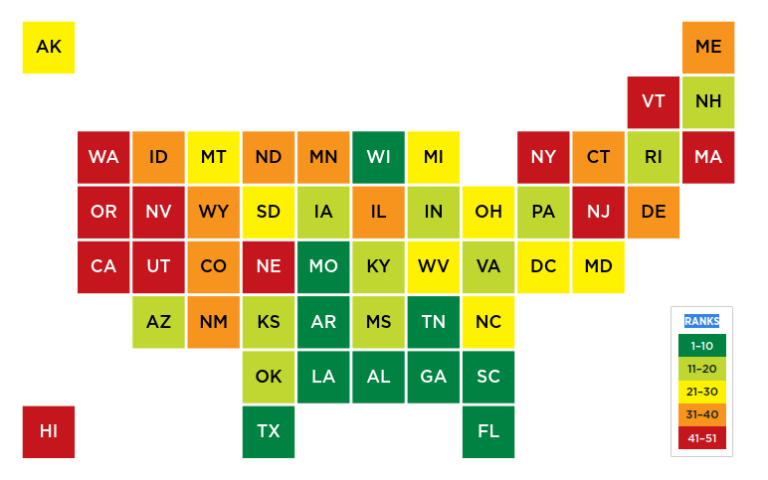Heritage Sentinel Call Notes 5/2
This week special guest Lindsey Burke, Director of the Center for Education Policy at The Heritage Foundation joined us to walk us through critical race theory, and how Sentinels can fight its invasion into the classroom. Listen here.
S.1 Hearing & Markup
The hearing and markup for S.1, the “Corrupt Politicians Act” has been scheduled for Tuesday, May 11th. We have scheduled a 30 minute special call for Thursday, May 6th at 3pm ET to discuss strategy and messaging for this hearing with Sentinels. We will send Sentinels a reminder email, call you, and livestream in the Sentinel Nation Facebook group as normal.
>> Take Action: Write a letter to the editor on why Senators should oppose S.1. Check out Heritage Action’s toolkit for talking points.
Election Integrity
THANK YOU to the Florida Sentinels who helped get SB90 across the finish line! This important bill includes a ban on the use of private money to fund election operations, improved observation of the signature verification process, preventions against mass mailing of absentee ballots, and additional protections against ballot trafficking by political operatives. The bill now heads to Governor Ron DeSantis’ desk, who has pledged to sign the bill.
You can continue to follow Heritage Action’s efforts to secure our elections at http://saveourelections.com/
Biden CRT Rule
Critical Race Theory (CRT) is a worldview that believes all events and ideas in society, from politics, to education, to society, can only be understood through the lens of racial identities and the discrimination that stems from that. CRT sees America not as a nation, but as a collection of tribes competing for power. Marxism is embedded in its view.
Critical Race Theory is a descendent of Critical Theory, a school of philosophy that began in Frankfurt, Germany, in the 1920s and 1930s at the University of Frankfurt’s Institute for Social Research. It became known as “the Frankfurt School.” It’s scholars fled Nazi Germany in 1934 to Columbia University’s Teachers College in New York. Based on the idea that classes struggled against each other based on economic disparity, CRT goes further, pitting groups against each other based on race.
There are three things critical race theory holds:
- There is no absolute truth—only competing narratives. It sees “lived experiences” as mattering more than facts.
- Individuals are either an oppressor or victim. You are predetermined by immutable characteristics such as race to fall into either category. Culture is defined by groups exercising power over each other.
- America is systematically racist and must be dismantled. It sees America as having been founded on the system of capitalism, which is racist, and therefore must be disrupted.
In CRT’s view, the only remedy to past discrimination is present discrimination, and the only remedy to present discrimination is future discrimination. It is radically different from all that the Civil Rights Era aimed to achieve.
Proposed rule: On April 19, 2021, the Biden Administration proposed a rule that would allow the Department of Education to prioritize recipients to receive K-12 grants if they include critical race theory in their curriculum. While the size of the grants is a small portion of the amount of money the federal government spends on education, these priorities would infuse critical race theory into the United States’ largest education law—the Elementary and Secondary Education Act.
After proposing a rule, the public has a set amount of time they can submit comments on the rule. The Department of Education will receive comments until May 19th. They then must read through each comment.
It is important that Sentinels raise awareness of and comment on this rule, as this could be only the first of future attempts to use grants to infuse CRT into civics curriculum. The Civics Secures Democracy Act (H.R.1814/S.879) would provide $1 billion each year for six years in federal grants for civics education. While the legislation is bipartisan, it has been supported by a number of left-leaning groups such as iCivics, and a broader coalition called CivXNow. This strategy, similar to that used to implement Common Core, would use grants to drive curriculum, and raises concern that once implemented, could develop into in-effect national standards for civics education.
State legislatures have rightly begun to reject adopting CRT-driven policies. Recent legislation passed by Idaho could serve as a model for other states. Texas, Louisiana, New Hampshire, and Oklahoma are considering similar proposals.
Take action:
- Submit public comment opposing the proposed priorities for the American History and Civics Education programs by May 19th (see our toolkit for an example of a public comment to submit).
- Run for school board and work to ensure your community is teaching quality civics curriculum. There are 14,000 school boards across the country.
- Engage your school board members and make your voice heard. There are 100,000 school board members across the country that are elected to represent their communities.
- Educate your community on the truth about Critical Race Theory. When people see the radical leftist ideology for what it is, they are opposing CRT. It’s important that we know the issue, and learn to talk about the complexities of it well.
Groups like Parents Defending Education can also be allies on the ground for Sentinels in this fight.
As always, your Heritage Action regional coordinators are here to help you get started.
Janae Stracke
Grassroots Director
Heritage Action




